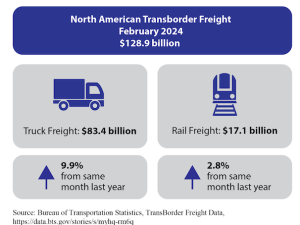As some customers began seeking alternatives to move autos, grain, coal and other goods, the Canadian government said it may introduce back-to-work legislation as early as next Monday if the strike drags on and harms the economy.
The company and the Teamsters Canada Rail Conference, whose 4,800 engineers, conductors and traffic controllers represent nearly a third of CP Rail's workforce, resumed talks o n We dnesday morning after a fruitless late-night session.
The Conservative government, quick to intervene in other labor disputes over the past year, said it hopes legislation is not needed, because the two sides are close a deal.
Labor Minister Lisa Raitt said a decision on when to intervene would depend on how the strike affects the Canadian economy. She projected that it would cost C$540 million ( $ 525 million) in economic activity each week.
Raitt said the two parties, who remain far apart on pension issues, can keep negotiating or agree to enter a 120-day mediation process with a federally appointed arbitrator.
"My sense is that it's getting more difficult, more constrained," Raitt told the Canadian Broadcasting Corp.
Still, Raitt's willingness to give the two sides more time contrasts with the speed with which she acted to get Air Canada employees back to work in their recent disputes with the country's largest airline.
That's partly because CP's larger rival, Canadian National Railway Co, can pick up some freight that might otherwise ship on CP Rail.
CP said it would immediately lay off more than 2,000 non-striking staff and expects to lay off 1,400 more workers as the work stoppage continues.
Ripple Effect
CP's operating performance is currently the worst in its industry, and its chief executive quit last week in the face of a boardroom coup led by the railway's biggest shareholder, who is demanding improvements.
CP's rail network is mostly concentrated in western Canada and in the United States, although U.S. operations are not affected by the strike. CN's network is bigger and broader.
"The suspension of CP's freight network in Canada due to the walkout means tens of thousands of carloads a day of a wide range of products like grain, coal, automobiles, lumber and other consumer and industrial products will not be moving," said CP spokesman Ed Greenberg. "This will have dramatic impacts on our customers' business and Canada's economy."
Customers were watching the situation with concern.
"The CP Rail strike will cause a shortfall of essential fuel and supply shipments to mines across Canada," the Mining Association of Canada said in a statement. "It will also prevent mines from delivering their products to their ... destinations."
Rail transport has grown more important to U.S. and Canadian oil producers as pipelines have filled with surging production from the Alberta tar sands and Bakken shale oil region of Saskatchewan and North Dakota.
The railroad also transports grain, vehicles and auto parts, as well as coal for Vancouver-based Teck Resources Ltd , a diversified miner that is CP's largest customer and one of the world's biggest exporters of steel-making metallurgical coal.
"It is critically important that we try and get a resolution to this as quickly as possible," said head of external affairs Marcia Smith.
The Canadian Wheat Board said the strike would delay at least 162,000 tonnes of grain shipments.
Two of the Big Three U.S. automakers, Ford and Chrysler Group, said they were seeking alternative shipment methods, while General Motors Co and, said it did not anticipate any impact on production.
Commuter rail services in Vancouver, Toronto and Montreal, which operate along CP's tracks, will continue without disruption during the strike, CP said.
But Via Rail, a federally owned company that operates passenger rail services, said the st







